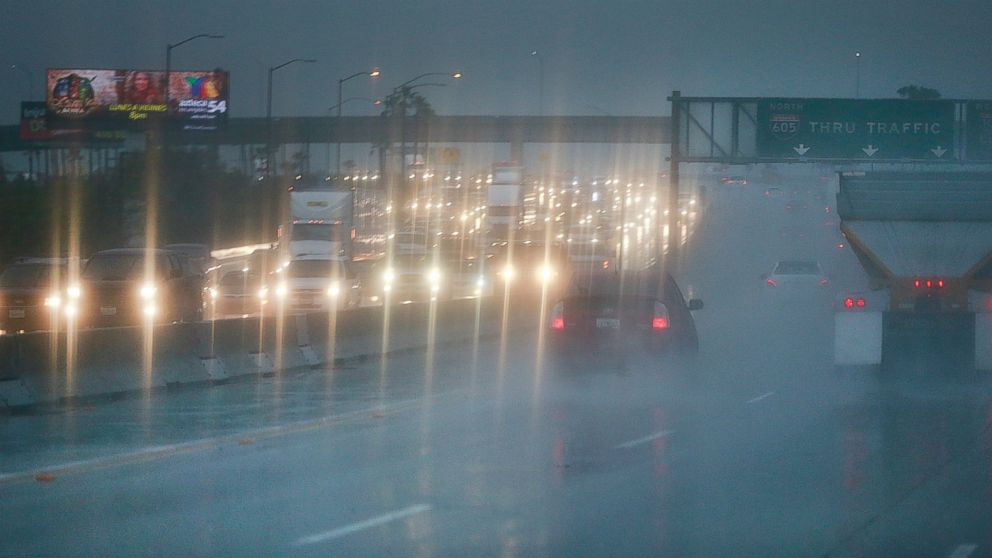Cloud Seeding: How Humans Helped Make It Rain During El Niño Storm in LA
Los Angeles officials used cloud seeding Monday for the first time since 2002.

— -- California has been battling one of the most severe droughts in the state's history, but with El Niño bringing storm clouds in over the Golden State, officials saw an opportunity to make it rain.
The Los Angeles County Department of Public Works was delighted at the prospect of some much-needed rain coming to the area and jumped at the chance to help increase the amount of rainfall the storm brought by intervening in a process known as cloud seeding. Monday's storm was the first time that cloud seeding had been done by the Department of Public Works since 2002, according to the Los Angeles Times.
Yes, humans can actually modify the weather and it's been going on for decades. Here's the lowdown on how cloud seeding works.
What Is Cloud Seeding?
Cloud seeding is when humans try to modify the weather by targeting certain areas within clouds, with the goal of increasing rainfall, mitigating the potential damage from hail and clearing fog, according to the American Meteorological Society.
In the case of Los Angeles County, North American Weather Consultants, a Utah-based group, set up generators, which then sprayed silver iodide into the clouds, creating ice particles. Water vapor then froze onto these particles and fell as precipitation.
Wait, So Humans Can Really Modify the Weather?
Yes! It's been going on all over the world for decades.
"Attempts to modify the weather have been conducted for centuries. However, modern cloud seeding dates from the late 1940's, springing from a discovery at the General Electric labs in Schenectady, New York, in 1946," according to North American Weather Consultants' website.
Don Griffith, president of the group, told ABC News that "the beneficiaries typically are municipal water supply groups and irrigated agriculture groups that wish to enhance the snowfall so they can get better spring and summer runoff."
How Effective Is Cloud Seeding?
Various research journals differ on this since there isn't an opportunity to create a controlled experiment. However, in the case of California's latest storm, the county estimated it resulted in 15 percent more rainfall, according to the LA Times.




